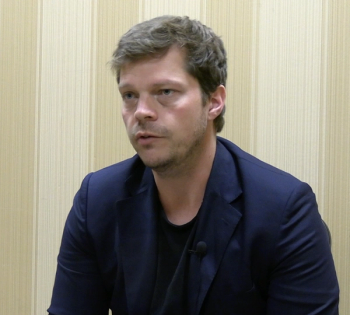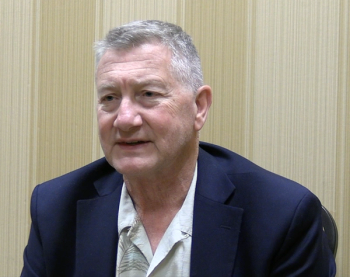
Spectroscopy Magazine Announces the 2020 Emerging Leader in Molecular Spectroscopy
Markita Landry, PhD, an assistant professor at University of California, Berkeley, has won the 2020 Emerging Leader in Molecular Spectroscopy Award, which is presented by Spectroscopy magazine.
Markita Landry, PhD, an assistant professor at University of California, Berkeley, has won the 2020 Emerging Leader in Molecular Spectroscopy Award, which is presented by Spectroscopy magazine. This annual award recognizes the achievements and aspirations of a talented young molecular spectroscopist, selected by an independent scientific committee. The award will be presented to Landry at the SciX 2020 conference in October, where she will give a plenary lecture and be honored in an award symposium.
Landry received her PhD from the University of Illinois at Urbana-Champaign in 2012. She was then a National Science Foundation (NSF) postdoctoral scholar at the Massachusetts Institute of Technology before taking her current position at the University of California Berkeley. She is also currently a faculty scientist with Lawrence Berkeley National Laboratory, an investigator at the Chan-Zuckerberg Biohub in San Francisco, and an investigator with the Innovative Genomics Institute in Berkeley.
Landry’s research focuses on the intersection of single-molecule biophysics and nanomaterial-polymer science to develop new tools to probe and characterize biological systems. Her research has generated nanoparticle-polymer conjugates for imaging and spectroscopic detection of neuromodulation in the brain, and for the delivery of genetic materials into plants for crop biotechnology applications.
She has developed a near-infrared (NIR) fluorescent probe as a tool that enables imaging of the chemical communication between neurons in the brain at the spatial (micrometer) and temporal (millisecond) scales the brain uses to communicate. This NIR nanoscale catecholamine probe molecule can be used to image the neuromodulator dopamine in the brain and has been validated against “gold standard” techniques in neuroscience, including electrophysiology and optogenetics. Landry and her group have also developed a generic, high-throughput approach for generating nanosensors for molecules for which molecular recognition elements do not exist. She and her team have demonstrated the utility of this platform by using it to develop a serotonin nanosensor that can support explorations of serotoninergic imaging in the brain and the effects of drugs at the level of individual nerve synapses, where signals pass from one neuron to another.
In her plant research, Landry has developed a new approach to genetic engineering using nanomaterials and their associated surface chemistries to controllably graft and quickly deliver functional biomolecular cargoes such as whole DNA plasmids to agriculturally relevant plants. These tools accomplish nanoparticle-mediated heterologous and transient expression of a protein in plants, and, unlike in genetically modified organisms, there is no transgenic DNA integration into the host plant genome. This DNA plasmid delivery approach provides host cells with selective genetic advantages. For example, her group has developed a new way to achieve targeted downregulation of plant or pest proteins to confer disease resistance to crops.
Landry is a recent recipient of 18 early career awards from the Brain and Behavior Research Foundation, the Burroughs Wellcome Fund, The Parkinson’s Disease Foundation, the DARPA Young Investigator program, the Beckman Young Investigator program, and the Howard Hughes Medical Institute. She is also a Sloan Research Fellow and an FFAR New Innovator.
For information about how to nominate a candidate for the 2021 award, please see the
Newsletter
Get essential updates on the latest spectroscopy technologies, regulatory standards, and best practices—subscribe today to Spectroscopy.




